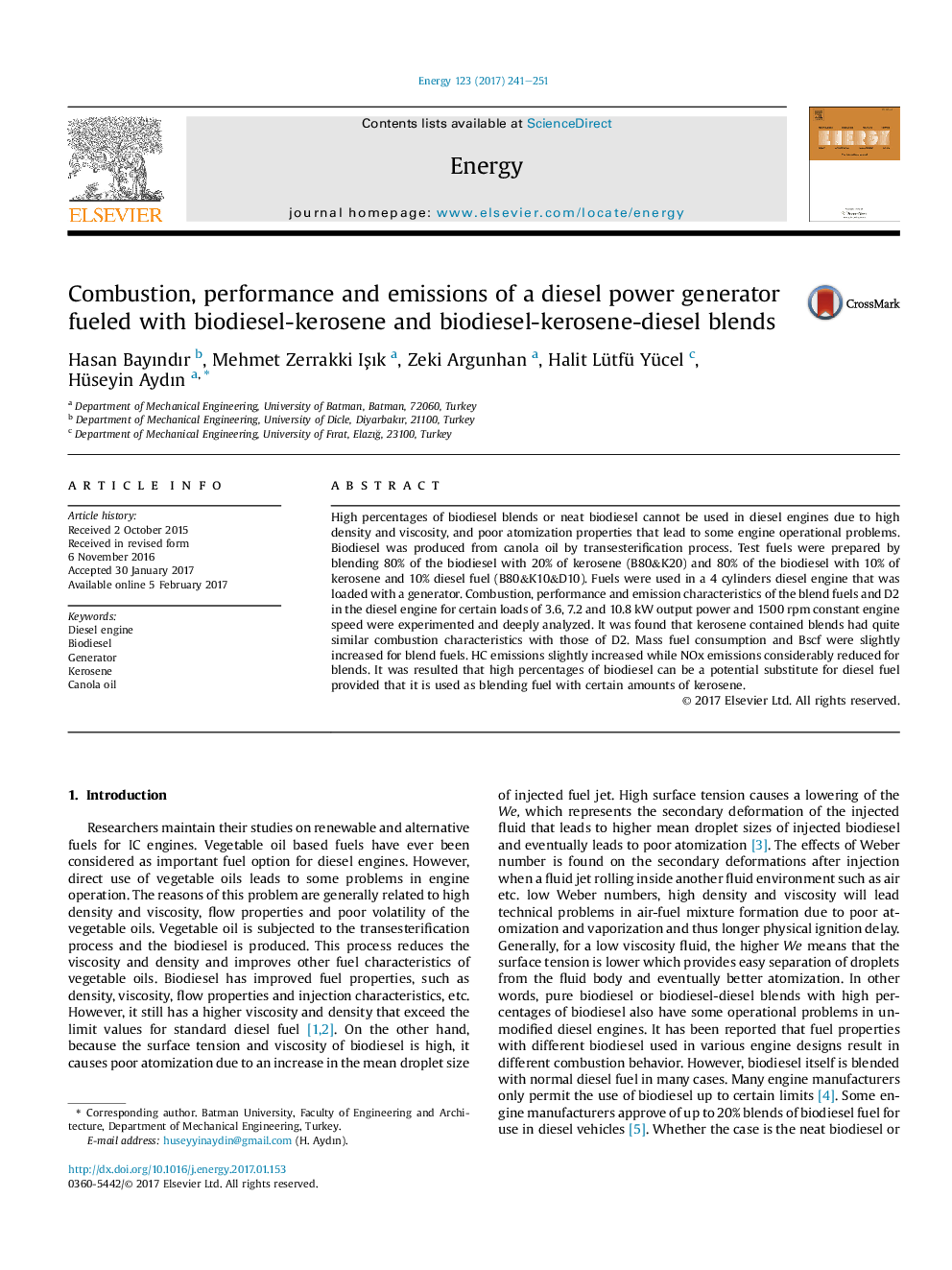| Article ID | Journal | Published Year | Pages | File Type |
|---|---|---|---|---|
| 5476095 | Energy | 2017 | 11 Pages |
â¢Effects of kerosene and diesel addition to biodiesel in a diesel engine were investigated.â¢B80&K10 and B80&K10&D10 were tested and comparisons have been made with D2.â¢Similar fuel properties and combustion parameters have been found for all fuels.â¢Heat release initiated earlier for B80&K10 and B80&K10&D10.â¢CO and NOx emissions are lowered for B80&K10 and B80&K10&D10.
High percentages of biodiesel blends or neat biodiesel cannot be used in diesel engines due to high density and viscosity, and poor atomization properties that lead to some engine operational problems. Biodiesel was produced from canola oil by transesterification process. Test fuels were prepared by blending 80% of the biodiesel with 20% of kerosene (B80&K20) and 80% of the biodiesel with 10% of kerosene and 10% diesel fuel (B80&K10&D10). Fuels were used in a 4 cylinders diesel engine that was loaded with a generator. Combustion, performance and emission characteristics of the blend fuels and D2 in the diesel engine for certain loads of 3.6, 7.2 and 10.8Â kW output power and 1500Â rpm constant engine speed were experimented and deeply analyzed. It was found that kerosene contained blends had quite similar combustion characteristics with those of D2. Mass fuel consumption and Bscf were slightly increased for blend fuels. HC emissions slightly increased while NOx emissions considerably reduced for blends. It was resulted that high percentages of biodiesel can be a potential substitute for diesel fuel provided that it is used as blending fuel with certain amounts of kerosene.
